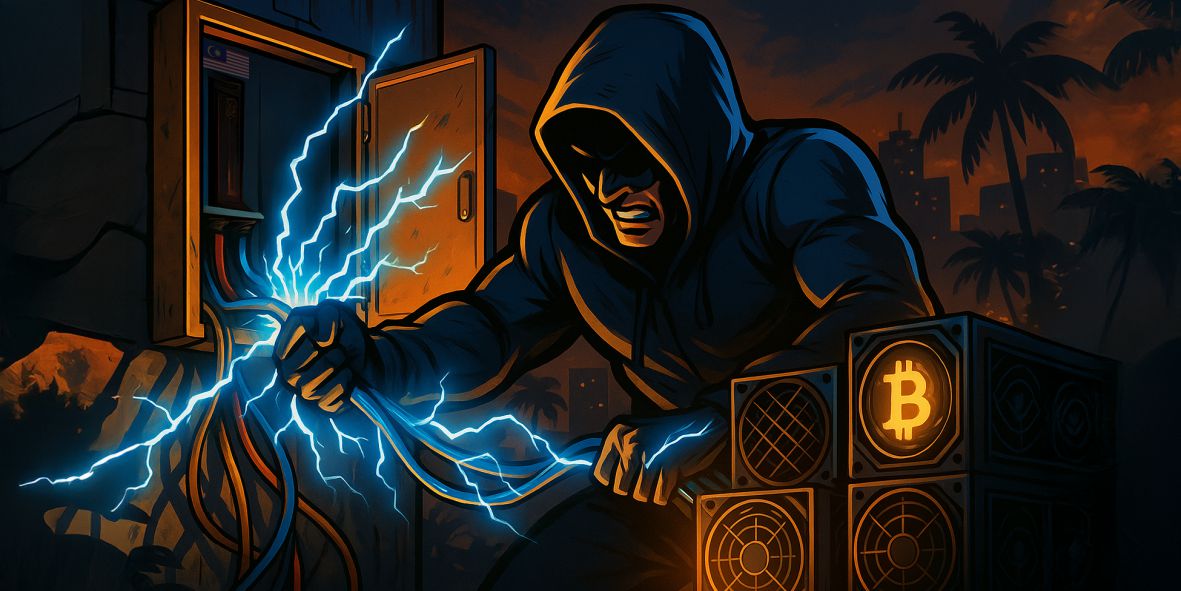Key Points:
- Malaysia’s Crypto-linked power thefts surged 300% since 2018.
- Illegal mining setups are hidden in homes, shops, and warehouses.
- Half a billion ringgit lost to power thefts.
As Bitcoin (BTC) pushes past $100K in early 2025, Malaysia is dealing with an unintended but severe consequence. A sharp spike in electricity theft that is driven by illegal crypto mining.
The national power utility, Tenaga Nasional Berhad (TNB), revealed a 300% rise in crypto-linked power thefts over six years. The number of cases climbed from 610 in 2018 to 2,397 in 2024. Illegal mining groups have been taking advantage of Malaysia’s cheap electricity, reportedly as low as $0.052 per kWh. As a result, Malaysia now contributes 2.51% of global Bitcoin mining power, ranking it among the top seven mining countries.
“These enforcement actions have safeguarded the stability of the power grid,” TNB said, highlighting cooperation with police, anti-corruption officers, and local councils.
Malaysian Syndicates in Disguise
In most cases, illegal operations are hidden in rented shops, warehouses, or homes, where there’s minimal foot traffic. These mining syndicates illegally tap into the national grid, bypassing meters entirely. Consequently, they consume massive amounts of electricity, often equivalent to that of entire apartment blocks.
In one case, a homeowner only realized their property was hijacked for mining when they received a $278,400 (RM1.2 million) electricity bill. In another incident, a fire in Bandar Puncak Alam led investigators to uncover a full-scale mining farm inside a residential house.
Smart tech vs. smart crime
To combat this, TNB has rolled out smart meters across high-risk zones. These devices use radio-frequency signals to track energy consumption in real time. As a result, they help detect unusual usage patterns much faster.
Additionally, TNB plans to integrate AI and predictive analytics into its monitoring system. The company also urged lawmakers to strengthen penalties under the Electricity Supply Act, proposing fines of up to RM1 million ($232,000) or 10 years’ imprisonment for violators.
Criminal’s Cost: Half a Billion Ringgit Loss
While Malaysia embraces crypto adoption, the rise in illicit mining exposes vulnerabilities in its energy systems. CID Director Datuk Seri Mohd Shuhaily stated that TNB has lost about 520 million Ringgit ($121 million) to power theft, largely tied to unauthorized mining setups.
Globally, Malaysia is not alone. Just last month, Kuwaiti authorities uncovered over 1,000 illegal mining sites, which triggered blackouts and strained their national grid.
Conclusion
Bitcoin may be virtual, but the impact of illegal mining is painfully real. As BTC continues to rally, governments must not only manage market volatility but also act quickly to secure energy infrastructure from criminal misuse.



